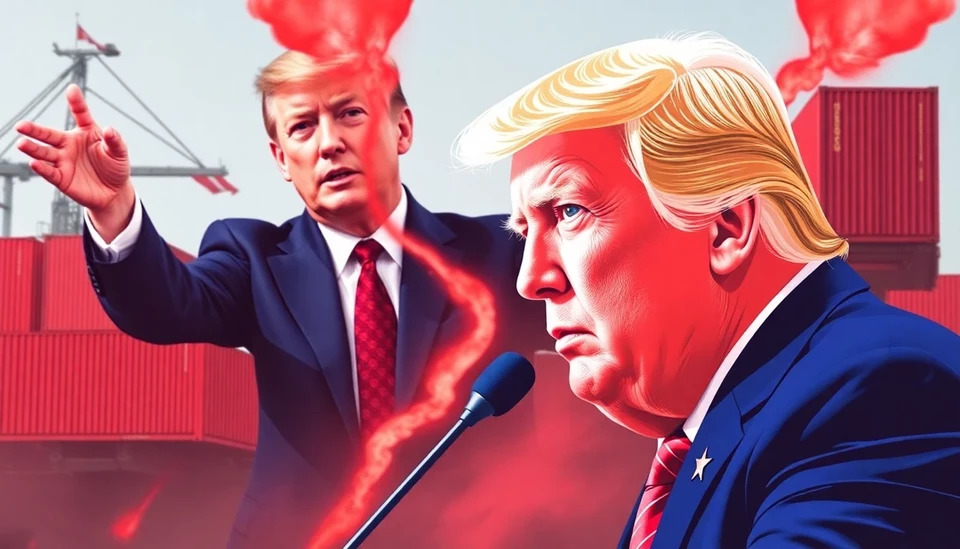
Recent developments in the ongoing trade conflict initiated by former President Donald Trump have taken a more intense turn, as his administration has announced a series of new tariffs targeting a range of countries. This escalation has raised concerns among economists and financial analysts about the implications for both domestic and global markets.
Following reports of increased tensions between the U.S. and several key trading partners, the Biden administration is now placed in a challenging position. They have to navigate the repercussions of Trump's aggressive trade policies while also addressing the pressures from American industries that are calling for protection against foreign competition.
The new round of tariffs, which target over $300 billion worth of imports from China and other nations, aims to counteract what the administration perceives as unfair trade practices. This comes on the heels of previous tariffs that have already strained relationships with various trading partners, including long-standing allies in Europe and Asia.
As the situation evolves, analysts are closely monitoring the reaction from affected countries. Many expect retaliatory measures, which would further muddy the waters of international trade and potentially lead to a full-blown trade war. Economists warn that such an escalation could have severe repercussions not only on tariffs and trade balances but also on inflation, employment, and overall economic growth.
U.S. farmers, manufacturers, and consumers are already feeling the effects of the earlier tariffs. Price increases on goods ranging from agricultural products to electronics have been reported, which has led to pushback from sectors historically supportive of Trump's trade efforts. The uncertainty around trade has left businesses grappling with rising costs and supply chain disruptions, which could ultimately lead to job losses and a slowdown in economic activity.
As the Biden administration evaluates its options, it faces a delicate balancing act. On one hand, there's a need to reassure American workers and industries that their interests are being protected. On the other hand, there’s a recognition that a prolonged trade conflict could exacerbate tensions with key allies and undermine global economic recovery post-pandemic.
The future of U.S. trade policy remains uncertain. Discussions are taking place within the administration regarding potential negotiations with trading partners to establish a more stable framework for international trade. However, any changes will likely be met with scrutiny from various stakeholders, including lawmakers, business leaders, and international allies.
As the United States grapples with its trade relations under the shadow of Trump’s legacy, experts predict that the coming months will be critical in determining the trajectory of U.S. trade policy and its broader economic impacts.
In conclusion, the trade war initiated by Trump is no longer just a political talking point; it has tangible consequences affecting millions across the nation. The Biden administration’s response will be pivotal in shaping the economic landscape not only in the U.S. but also around the world.
#TradeWar #Trump #BidenAdministration #Tariffs #Economy #GlobalTrade #China #USFarmers #Manufacturing #InternationalRelations
Author: Daniel Foster




